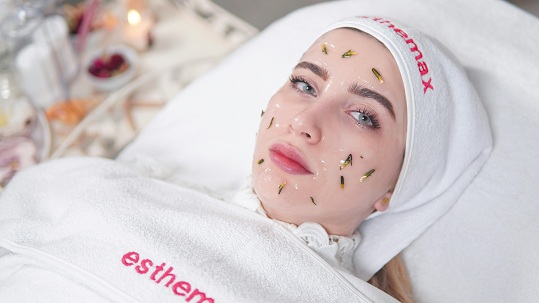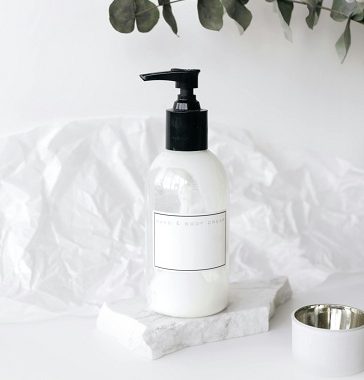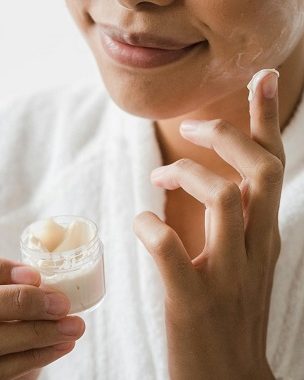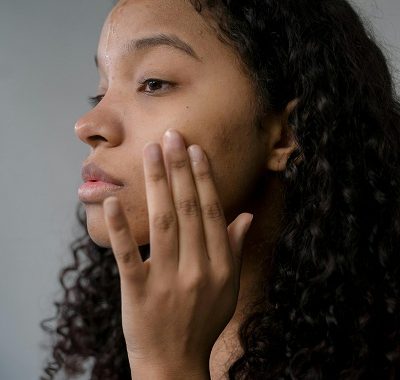
Achieving clear, blemish-free skin is the ultimate goal for many individuals who diligently follow a skincare routine.
However, despite investing time and effort into a meticulous regimen, some find themselves still battling stubborn breakouts. If you’ve ever pondered, “Why am I still breaking out with a good skincare routine?” you’re not alone.
This perplexing issue has garnered attention across various platforms, including Reddit, where users seek answers and share their experiences.
Let’s delve into this common skincare conundrum and explore potential reasons behind persistent breakouts, along with expert advice on managing them.
Reddit Queries and Community Insights
Reddit serves as a hub for skincare enthusiasts seeking advice and support. On the subreddit dedicated to skincare, users frequently discuss their struggles with persistent acne despite adhering to what they believe to be an effective skincare routine.
Many express frustration over the lack of improvement and seek guidance on how to address their ongoing breakouts.
One user laments, “Why am I still breaking out with a good skincare routine Reddit? I’ve tried everything, but my acne seems to be getting worse.”
This sentiment resonates with numerous individuals grappling with similar concerns. So, what could be causing this seemingly paradoxical situation?
Signs Your Acne Is Clearing Up
Before delving into the reasons behind persistent breakouts, it’s essential to differentiate between temporary setbacks and actual progress in your skincare journey. Signs that your acne might be clearing up include:
- Reduced Inflammation: Existing blemishes appear less swollen and red.
- Decreased Frequency: You notice fewer new breakouts occurring over time.
- Improved Texture: Skin feels smoother, with fewer bumps and rough patches.
- Lightened Scarring: Post-inflammatory hyperpigmentation (PIH) begins to fade gradually.
Observing these signs indicates that your skincare routine is likely yielding positive results, albeit gradually. However, if you find yourself waking up with a new pimple every day or experiencing a worsening of acne despite your efforts, it’s essential to investigate further.
Potential Reasons for Persistent Breakouts
Several factors could contribute to ongoing acne despite following a seemingly effective skincare routine:
- Skin Purging vs. Breakouts: Confusion often arises between skin purging and traditional breakouts. While purging occurs when active ingredients accelerate the skin’s cellular turnover, leading to temporary worsening of acne, true breakouts result from product intolerance or other underlying issues.
- Product Sensitivity: Even with a good skincare routine, certain products may trigger adverse reactions in sensitive individuals, leading to breakouts. Ingredients such as fragrances, sulfates, and comedogenic oils can exacerbate acne in susceptible individuals.
- Unaddressed Triggers: Lifestyle factors, hormonal fluctuations, dietary choices, and environmental pollutants may contribute to acne flare-ups. Identifying and addressing these triggers are crucial for effective acne management.
- Incorrect Product Selection: Despite good intentions, using the wrong products for your skin type or concerns can worsen acne. Opting for non-comedogenic, oil-free formulations tailored to your skin’s needs is essential.
- Underlying Skin Conditions: In some cases, persistent acne may signal an underlying skin condition such as hormonal imbalances, rosacea, or folliculitis. Consulting a dermatologist can help diagnose and address these issues effectively.
Dermatologist Recommended Skincare Routine for Acne
Seeking professional guidance is paramount when grappling with persistent acne. A dermatologist can assess your skin’s unique needs, identify potential triggers, and recommend a tailored skincare regimen. A typical dermatologist-recommended skincare routine for acne may include:
-
Cleanser:
Choosing the right cleanser is crucial for maintaining clear, healthy skin. Here’s a closer look at why using a gentle, non-comedogenic cleanser twice daily is essential for an effective skincare routine:
- Gentle Formulation: A gentle cleanser is formulated with mild surfactants that effectively remove dirt, oil, and makeup from the skin’s surface without causing irritation or disrupting the skin’s natural barrier. Harsh cleansers can strip away essential oils, leading to dryness, inflammation, and potential exacerbation of acne.
- Non-Comedogenic Properties: Non-comedogenic cleansers are specifically designed to prevent pore clogging, making them ideal for acne-prone skin. These formulas are oil-free and won’t contribute to the formation of new blemishes or exacerbate existing acne. By keeping the pores clear and free of debris, non-comedogenic cleansers help reduce the risk of breakouts.
- Balanced pH: A good cleanser maintains the skin’s natural pH balance, which is essential for optimal skin health. Imbalanced pH levels can disrupt the skin’s protective barrier, leading to increased sensitivity, inflammation, and susceptibility to breakouts. Opting for a cleanser with a pH similar to that of the skin helps maintain its integrity and resilience.
- Regular Usage: Cleansing the skin twice daily, in the morning and evening, is essential for removing accumulated dirt, oil, sweat, and environmental pollutants. Consistency is key to preventing pore congestion and maintaining clear pores. Skipping cleansing or over-cleansing can disrupt the skin’s balance and contribute to acne flare-ups.
- Preparation for Treatment: A clean canvas is essential for the optimal efficacy of subsequent skincare products. By starting with a fresh, clean face, you ensure that acne-fighting ingredients such as benzoyl peroxide, salicylic acid, or retinoids can penetrate the skin effectively and target acne-causing bacteria, unclog pores, and promote cell turnover.
- Avoidance of Irritants: Many conventional cleansers contain harsh ingredients such as sulfates, fragrances, and artificial dyes, which can irritate the skin and trigger inflammation. Opting for a gentle, non-comedogenic cleanser minimizes the risk of irritation and allergic reactions, making it suitable for sensitive skin types as well.
-
Treatment:
- Benzoyl Peroxide: Benzoyl peroxide is a powerful antimicrobial agent that effectively kills acne-causing bacteria known as Propionibacterium acnes. By reducing bacterial populations on the skin’s surface, benzoyl peroxide helps prevent new breakouts from forming.
Additionally, it possesses mild anti-inflammatory properties, making it beneficial for reducing redness and swelling associated with acne lesions. Benzoyl peroxide is available in various concentrations, ranging from 2.5% to 10%, with lower concentrations often recommended to minimize irritation while still providing effective acne control.
2. Salicylic Acid: Salicylic acid is a beta hydroxy acid (BHA) renowned for its ability to penetrate deep into the pores, where it dissolves excess sebum (oil), dead skin cells, and other impurities that contribute to clogged pores and acne formation.
By exfoliating the skin’s surface and promoting the shedding of dead skin cells, salicylic acid helps unclog pores, prevent new blemishes, and improve overall skin texture. Additionally, its anti-inflammatory properties help reduce redness and inflammation associated with acne. Salicylic acid is commonly found in various skincare products, including cleansers, toners, spot treatments, and exfoliants.
3. Retinoids: Retinoids, derived from vitamin A, are potent compounds renowned for their remarkable ability to regulate cell turnover, stimulate collagen production, and unclog pores.
Retinoids work by binding to specific receptors in the skin, where they accelerate the shedding of dead skin cells and promote the generation of new, healthy skin cells. By encouraging the turnover of skin cells, retinoids help prevent pores from becoming clogged with debris, thereby reducing the formation of comedones (whiteheads and blackheads) and preventing acne breakouts.
Additionally, retinoids possess anti-inflammatory properties that aid in reducing acne-related inflammation and redness. Commonly prescribed retinoids include tretinoin, adapalene, and tazarotene, available in various formulations ranging from gels and creams to serums.
-
Sunscreen:
Sunscreen is often hailed as the cornerstone of any skincare routine, and for good reason. Exposure to ultraviolet (UV) radiation from the sun is a leading cause of premature skin aging, sunburn, and an array of skin cancers. Incorporating a broad-spectrum sunscreen into your daily regimen offers crucial protection against these harmful effects.
- Understanding Broad-Spectrum Protection
Not all sunscreens are created equal. Broad-spectrum sunscreens provide protection against both UVA and UVB rays. UVB rays primarily cause sunburn and contribute to the development of skin cancer, while UVA rays penetrate deeper into the skin, leading to premature aging and exacerbating hyperpigmentation issues. By opting for a broad-spectrum sunscreen, you ensure comprehensive protection against the full spectrum of damaging UV radiation.
- Preventing Post-Inflammatory Hyperpigmentation (PIH)
Post-inflammatory hyperpigmentation (PIH) refers to darkened spots or patches that appear on the skin as a result of inflammation or injury, such as acne breakouts or sun exposure. Individuals with acne-prone skin are particularly susceptible to PIH, as blemishes often leave behind residual discoloration.
Sunscreen plays a vital role in preventing the worsening of existing hyperpigmentation and safeguarding against the development of new dark spots. By shielding your skin from UV radiation, sunscreen helps mitigate the risk of PIH and promotes a more even, radiant complexion.
- Choosing the Right Sunscreen
When selecting a sunscreen, opt for a formulation specifically designed for the face and suitable for your skin type. Look for non-comedogenic, oil-free options to avoid clogging pores and exacerbating acne.
Additionally, consider factors such as SPF (sun protection factor) rating and water resistance to ensure adequate protection throughout the day, especially if you’ll be spending extended periods outdoors or engaging in water-related activities.
- Incorporating Sunscreen into Your Routine
To reap the benefits of sunscreen, it should be applied as the final step in your morning skincare routine, following moisturizer and before makeup (if applicable). Apply a generous amount to cover all exposed areas of the face, neck, and any other sun-exposed areas of the body. Reapply sunscreen every two hours, or more frequently if sweating or swimming, to maintain optimal protection throughout the day.
Best pimples treatment for face
-
Consistency:
Consistency is paramount in any skincare routine, especially when dealing with persistent breakouts. It’s crucial to adhere to your skincare regimen diligently and consistently to allow the products and treatments to work effectively. Here are some additional details on the importance of consistency in skincare:
- Establishing a Routine: Consistency starts with establishing a daily skincare routine tailored to your skin type and concerns. This routine should include cleansing, treating, moisturizing, and sun protection, ideally performed both morning and night. By integrating these steps into your daily life, you create a habit that becomes second nature.
- Product Absorption: Skincare products require time to penetrate the skin and exert their effects fully. Consistently applying products allows for better absorption and efficacy. Skipping steps or inconsistently following your routine can hinder product absorption and compromise results.
- Addressing Underlying Issues: Persistent breakouts often stem from underlying issues such as clogged pores, excess oil production, or inflammation. Consistent use of targeted treatments helps address these issues over time, leading to gradual improvement in acne severity and frequency.
- Preventing Recurrence: Acne is a chronic condition for many individuals, meaning it requires ongoing management rather than a one-time solution. Consistency in skincare helps prevent acne recurrence by maintaining a balanced skin environment, minimizing pore congestion, and controlling inflammation.
- Monitoring Progress: Consistently following your skincare routine allows you to track progress and identify any necessary adjustments. By observing changes in your skin’s texture, tone, and breakout frequency over time, you can gauge the effectiveness of your current regimen and make informed decisions about modifications if needed.
- Patience and Persistence: Achieving clear, healthy skin is a journey that requires patience and persistence. Results may not be immediate, and it’s essential to remain committed to your skincare routine even when progress seems slow. Consistency, coupled with patience, is key to achieving long-term skincare goals.
- Avoiding Overuse: While consistency is vital, it’s also essential to strike a balance and avoid overuse of certain products or treatments. Overloading the skin with active ingredients can lead to irritation, dryness, and further breakouts. Follow product instructions and listen to your skin’s feedback to ensure you’re using them appropriately.
In conclusion
The journey to clear skin can be fraught with challenges, and persistent breakouts despite a good skincare routine can be disheartening. By understanding potential triggers, seeking expert advice, and maintaining consistency in your skincare approach, you can overcome this hurdle and achieve the radiant, healthy complexion you deserve.
Remember, skincare is not one-size-fits-all, and what works for one person may not necessarily work for another. Stay informed, stay patient, and don’t hesitate to reach out for professional assistance when needed. Your skin deserves the best care possible.
Further Reading:
What to do when your skin care routine stops working, according to dermatologists
FAQs:
Why is my skin breaking out even though I take care of it?
Breakouts can occur despite diligent skincare due to various factors like hormonal fluctuations, product sensitivity, or underlying skin conditions. Hormonal changes, especially during puberty, menstruation, or stress, can trigger acne. Additionally, using the wrong products or over-cleansing can disrupt the skin’s balance, leading to breakouts. Sometimes, underlying skin conditions like rosacea or folliculitis may contribute to acne. Consulting a dermatologist can help identify the root cause and tailor a skincare routine to address it effectively.
Â
Why does my acne not go away even with skincare?
Persistent acne despite skincare efforts can be attributed to various factors, including hormonal fluctuations, underlying health conditions, genetic predisposition, improper product selection, and lifestyle habits like diet and stress. Additionally, what works for one person may not work for another due to differences in skin type and sensitivity. Seeking professional advice from a dermatologist can help identify the root cause of your acne and tailor a more effective treatment plan suited to your specific needs.
Â
Why am I breaking out even though I wash my face everyday?
Breakouts can occur despite regular face washing due to various factors like using harsh cleansers stripping the skin, not addressing underlying triggers like diet or hormones, product sensitivities causing irritation, or inadequate cleansing techniques leaving behind impurities. It’s crucial to use a gentle, non-comedogenic cleanser, maintain consistency in skincare routine, and consider consulting a dermatologist to identify and address potential causes for persistent breakouts.
Â
Why is my face breaking out when it normally doesn t?
Breakouts can occur due to various factors like hormonal fluctuations, stress, dietary changes, or using new skincare products. These can disrupt the skin’s balance, leading to increased oil production, clogged pores, and acne. Environmental factors, such as pollution and humidity, can also contribute to breakouts by exacerbating inflammation and bacterial growth on the skin. Identifying the specific trigger can help address the issue and restore your skin’s clarity. Consulting a dermatologist may provide personalized insights and solutions for managing sudden breakouts effectively.




Pingback: 10 Skin Care Habits That Can Worsen Acne and Dermatologists’ Tips for Clearer Skin - Acnes derma relief